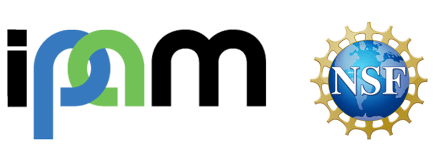Workshop III: Foundations of secure multi-party computation and zero-knowledge and its applications
Overview
“Networks lie at the core of the economic, political, and social fabric of the 21st century” (quote from the 2005 NRC report on “Network Science). Networks are encountered in biological, engineered, or social systems, at many layers of abstraction, from physical structures at the microscopic level to more logical or virtual constructs at the macroscopic level. Pr ominent examples include bacterial transcriptional regulatory networks, metabolic networks, cellular neural networks, the immune system, the power grid, communication networks such as the Internet, transportation infrastructures such as the world-wide air transportation network, financial networks, health-care provider networks, and sexual contact networks.
ominent examples include bacterial transcriptional regulatory networks, metabolic networks, cellular neural networks, the immune system, the power grid, communication networks such as the Internet, transportation infrastructures such as the world-wide air transportation network, financial networks, health-care provider networks, and sexual contact networks.
To date, the mathematical study of networks has largely focused on static graph structures and their properties and has used ideas from such diverse fields as graph theory, probability theory (e.g., branching processes, infinite particle systems, Polya urns), statistical physics, computer science, etc. This workshop will bring together experts with diverse backgrounds to discuss current challenges in modeling and analyzing networked structures, with a specific focus on dynamics *of* networks (i.e., how do real-world networks such as the World-Wide-Web evolve over time) and dynamics *over* networks (i.e., for networks that carry some form of traffic, what is its dynamic and how does it interact with the network).
Organizing Committee
Boaz Barak
(Princeton University)
Dan Boneh
(Stanford University)
Ran Canetti
(IBM Thomas J. Watson Research Center)
Ronald Cramer
(CWI, Amsterdam & Math Inst, Leiden
University)
Shafi Goldwasser
(MIT/Weizmann Institute)
Yuval Ishai
(Technion - Israel Institute of Technology)
Eyal Kushilevitz
(Technion - Israel Institute of Technology)
Rafail Ostrovsky
(UCLA)
Amit Sahai, Chair
(UCLA)
